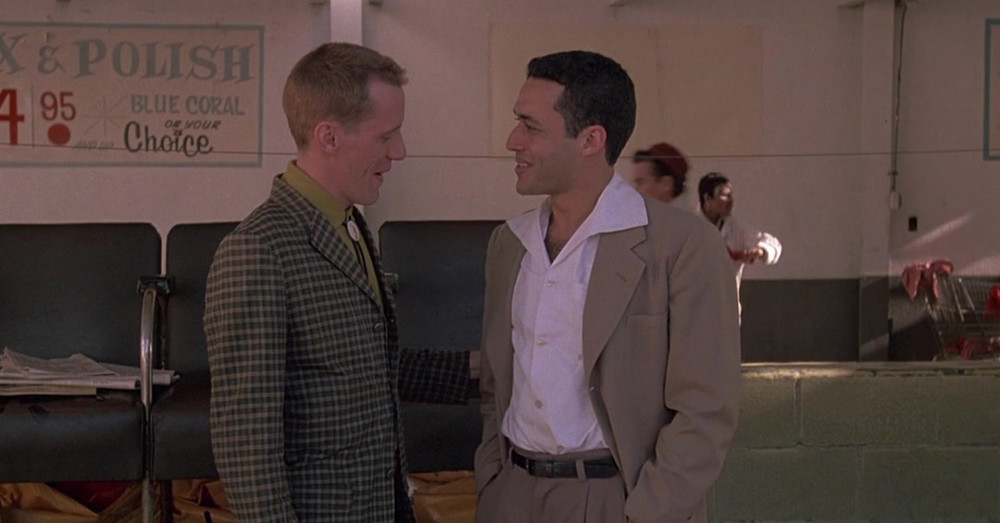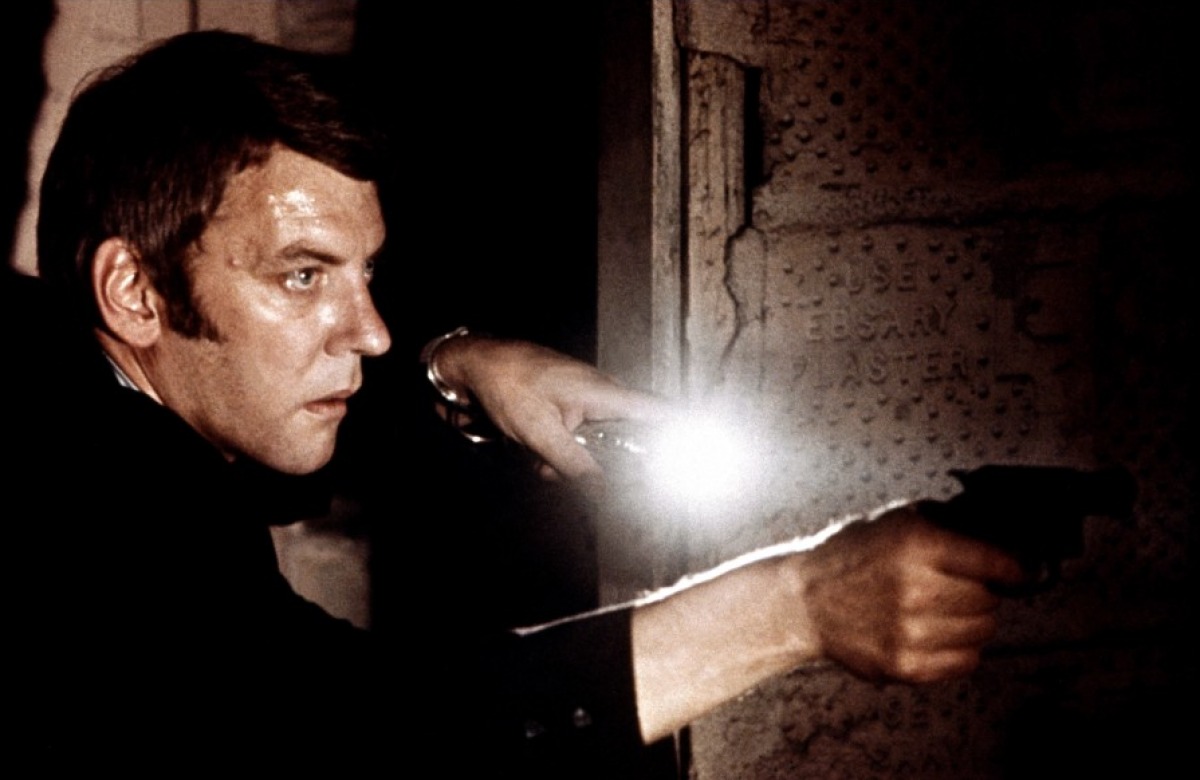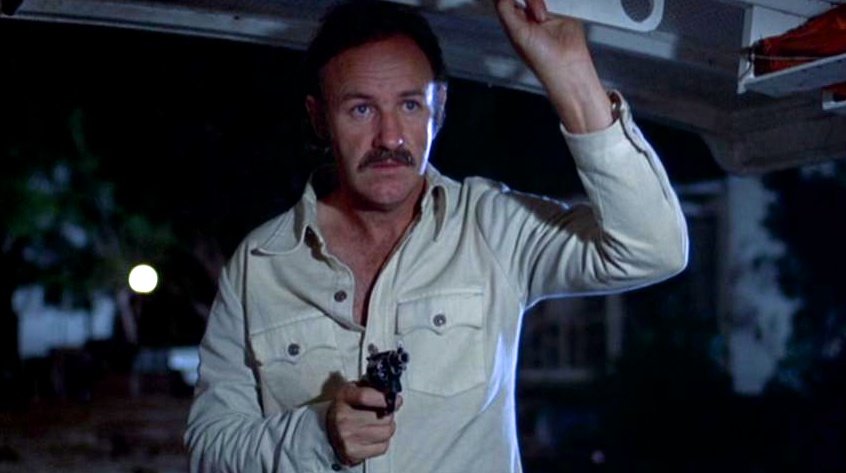
The 1970s was the age of New Hollywood, a time when film auteurs and movie mavericks were exploring the human condition from all manner of angles. Cinema had moved away from the mega budgets of the previous decades, had shifted drastically from lavish epics and star studded musicals, and moved to smaller, more personal fare.
Directors like Hal Ashby, Bob Rafelson and Peter Bogdanovich, among others, led the way with their exercises in existentialism. That said, the 1970s were not all introspection when it came to the movies, and there were all kinds of genre films still attracting punters and critical acclaim alike. The thriller, for instance, came in all kinds of guises throughout this era, from intense chillers to subtle character studies. Some were mega hits, others sank without trace. The following list features ten great thrillers from that era, some you may know and love, others you may have never heard of.
1. Prime Cut (1972)

After his glorious moment at the Oscars, winning Best Actor for The French Connection, Gene Hackman continued to work solidly. Some of the films were major blockbusters (Poseidon Adventure), others more arty fare. Prime Cut (1972) is sadly one of the less talked-about films he made in the early to mid 1970s.
Directed by Michael Ritchie, it follows Lee Marvin as Nick, an enforcer sent from Chicago by the mob to retrieve a debt of £500,000 from Kansas City meat industry tycoon “Mary Ann”, played with menace by Hackman. But this is no straight forward gangster shoot ’em up. There are hints of homosexuality between Mary Ann and his twisted brother, and more disturbingly there is a sub plot where Nick saves a young girl (played by Sissy Spacek) from Mary Ann’s human sex slave sale, where the teens are drugged and taken away by the highest bidder. On top of this is the fact that, at the film’s very start, it’s clear that Mary Ann has arranged for one of the Chicago mob’s men to be mashed up and processed into sausage meat.
All this, it’s fair to say, made the picture pretty controversial in 1972. It may leave a bit of a nasty taste in the mouth, but it’s bold, brilliantly acted and finely constructed. It’s so well written in fact that it literally flies by, and it’s peppered with quotable dialogue. There is a statement being made here about meat as a concept, as dead flesh, the price of flesh, and the value of human beings when compared to our more primitive friends who are bought, sold and processed. But for the most part it’s just an exciting, utterly involving thriller. Marvin is the solid hero, while Hackman is pure sleaze as Mary Ann, a creep who runs his empire with ruthless abandon, unconcerned with the world outside his realm of seediness.
2. The Domino Principle (1977)

The Domino Principle (1977) is another recognised dud in Gene Hackman’s mid to late 1970s output, but one that I feel deserves more credit than it gets. Critically mauled at the time, it stars Hackman as Roy Tucker, a man imprisoned for murder who receives an offer in jail from someone who will help him escape, but only if he promises to work for an “organisation” upon release.
For a film with such a bad reputation, The Domino Principle is actually really good. Opening with a great shot of a melancholic Hackman in close up, peering through his cell bars, he immediately makes you interested in the tale that follows. It may not be the greatest film he made, but it’s a strong effort that should not be overlooked. From his early interactions with cell mate Mickey Rooney, to his tense shenanigans on the outside, Gene gives his part intensity, a brooding resentment that makes Tucker a classic Hackman figure.
It’s a thriller with little depth, granted, but it keeps you intrigued and fully involved to the very end. An under-appreciated gem in my view, The Domino Principle is vintage Hackman in anti hero action mode – and it’s brilliant.
3. The Onion Field (1979)

The Onion Field is a powerful and often very moving film based on a true story, originally adapted into a book by LAPD sergeant and author, Joseph Wambaugh. It concerns the infamous murder of LAPD police detective Ian Campbell, and the escape of Officer Karl Hettinger from the scene of the crime. The two officers had pulled over a car with suspicious drivers, Greg Powell and Jimmy Smith, the latter just out of prison, the former a crazed sociopath without a care in the world. Greg pulled a gun on the cops and forced them into their car, where they drove out to the outskirts of town. Pulled out of the vehicle, Powell murdered Campbell in cold blood, and Hettinger fled into the night. The subsequent farce of a trial to lock up the killers – among the most dragged out in US history – highlights the painfully fatal flaws in the legal system..
Produced by Wambaugh himself, and directed by the often overlooked Harold Becker (who later made Sea of Love), the finished film is a rare gem. Becker directs beautifully, a true actor’s director who lets the players get to grips with the material. He establishes a mood of unrest from the start, but it is only that fateful night when Campbell is killed that the atmosphere shifts into truly dark territory.
Becker and Wambaugh were aided by a terrific cast; Franklin Seales is brilliant as Jimmy Smith, while Ted Danson and John Savage are also very convincing as the two cops, the one sadly murdered, and the one that escaped with his body but not all of his mind. But the most striking and indeed disturbing performance comes from James Woods as Greg, a sociopathic narcissist who can turn the charm on just as quickly as he can draw a gun. This star making turn, which earned Woods rave reviews and a Golden Globe nomination, is a breathtaking, terrifyingly convincing piece of work which is right up there to this day as one of the finest acting feats of 70’s American cinema.
Rarely singled out as a solid 70s film, it’s largely unavailable these days and you will have to track down a second hand DVD if you want to see it. That said, it is more than worth the digging around. A remarkably effective film.
4. Klute (1971)

In 1971, Donald Sutherland would give one of the most subtle, quietly impressive performances of his working life, starring alongside Jane Fonda in Alan J Pakula’s paranoid classic, Klute. While much of the positive notices went to Fonda, as indeed did the awards (including, among others, the Best Actress Oscar), Sutherland’s work was so measured and nuanced that some might look past it. But without his oddly comforting presence, the film would have lost much of its tension.
Klute is a thriller on the subdued side, a film that is deceptively quiet with seemingly very little happening. That said, beneath the restrained surface is a lot of hidden tension, and a plot which carefully unravels as it goes towards its climax. With an often melancholic atmosphere, Klute might not appeal to fans of ultra violent thrillers, but those who enjoy character-led stories will be pulled in, albeit quietly, from the word go.
Sutherland is the detective of the title investigating the disappearance of a friend, who may or may not have had something to do with a call girl, played with a certain jagged edginess by Fonda. Again, Fonda is brilliant here, but the film is held together by Sutherland. From the more madcap material he took part in during the previous year (MASH for instance), Sutherland reined it in for Klute, and I believe his work in the picture has aged the best of all. A pity then, that it was so overlooked at the time of the movie’s release. (And even since for that matter, given that most people tend to focus on Fonda and Sutherland’s real life love affair rather than any of the work they did together.)
Klute is an undisputed classic, but one I feel is fading away with time. At one point it was highly regarded, but these days it seems to slip through the viewing cracks of many film buffs.
5. Night Moves (1975)

Arthur Penn’s seminal Night Moves (1975) is a film that often gets ignored, perhaps due to the fact that it isn’t remotely showy and is intensely character-based, if not fustily so. Gene Hackman eases himself into the curious role of Harry Moseby, a private investigator who is looking for the missing daughter of an ageing veteran actress. Melanie Griffith is the young girl, and James Woods has a minor part as Quentin, a sleazy mechanic.
The supporting players fit their roles like gloves, but this is Hackman’s show all the way through. The plot unwinds with subtlety, is beautifully directed by Penn, and is a real showcase for Hackman’s more reserved style of acting. Moseby is another one of his crumpled, slightly crusty middle aged outsiders, a man so into his work he’s found it’s had a negative effect on his personal life, and more specifically his marriage.
Night Moves is one of those quietly compelling, curious character studies, with Hackman as one of his most off-to-one-side obsessives, a man who pokes around so much in other people’s lives he’s forgotten to focus on his own. Like The Conversation’s Harry Caul, this is a perfect shell for Hackman to inhabit, and he gets right under Moseby’s skin from his first scene onward. The picture itself has a healthy pace, neat direction and complex characters expertly played by the whole cast, but it is Hackman who remains centre stage and demands (very quietly) our attentions until the bizarre closing chapter.